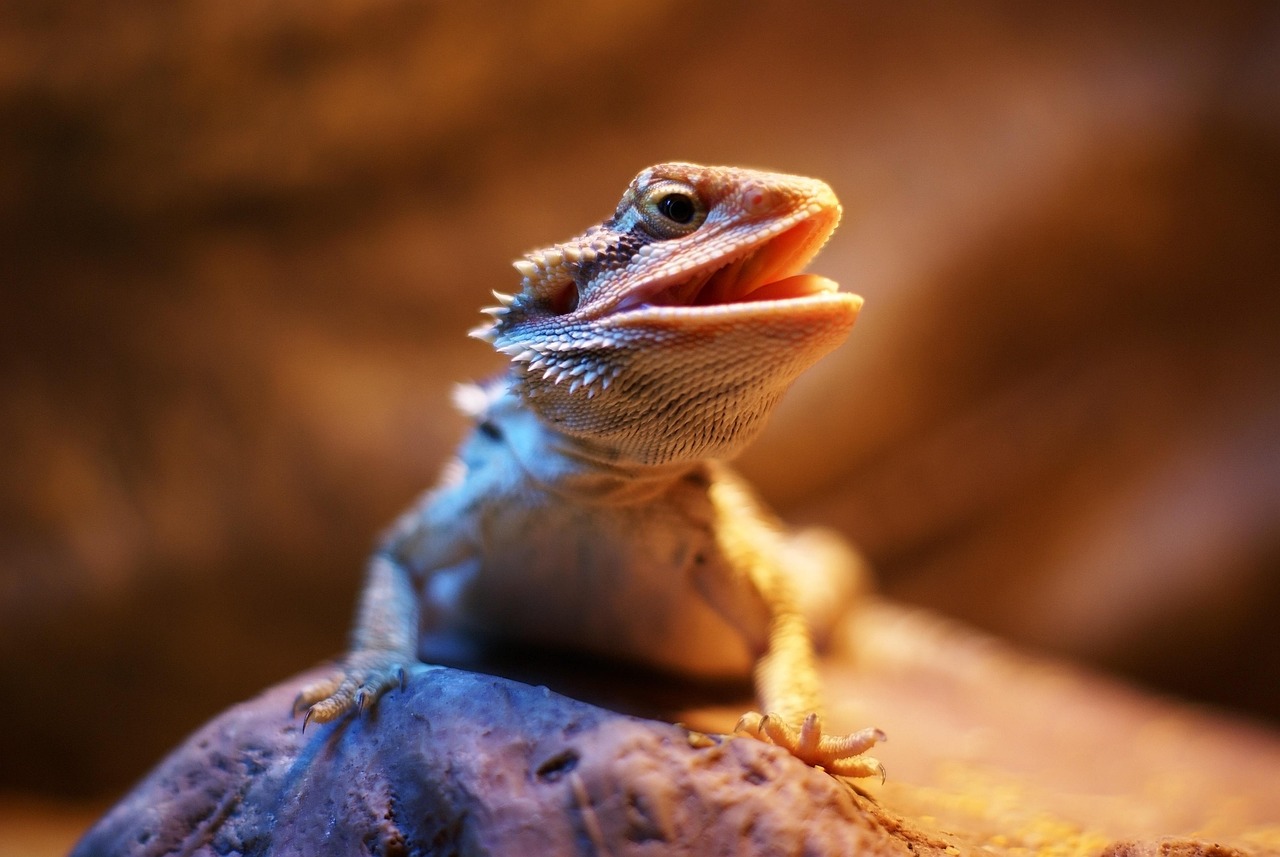Bearded dragons are fascinating, low-maintenance pets, but their diet can make or break their health. A well-balanced feeding routine is essential to ensure they thrive for years to come. Whether you’re a first-time owner or looking to fine-tune your dragon’s meals, here’s everything you need to know about what they should and shouldn’t eat.
The Best Greens and Vegetables
A significant portion of a bearded dragon’s diet should consist of fresh greens and vegetables. These provide essential vitamins and minerals to support their overall well-being.
Staple Greens
These should make up the bulk of their diet, as they’re packed with nutrients and safe for daily consumption:
- Collard greens – A fantastic calcium source with a great nutrient balance.
- Mustard greens – High in vitamins while being gentle on digestion.
- Dandelion greens – Rich in calcium and fiber while being readily available.
- Endive/Escarole – Mild in flavor and easy for dragons to digest.
Vegetables to Mix In
For variety and additional nutrients, consider adding these regularly:
- Squash (butternut, acorn, yellow) – Soft and full of vitamins A and C.
- Bell peppers – Good for color variety and vitamin C, but feed in moderation.
- Carrots – Great occasional treat but limit them due to high vitamin A content.
- Cactus pads (nopales) – Calcium-rich with additional hydration benefits.
Be sure to chop greens and veggies into small, manageable pieces to prevent choking hazards.
Protein Sources: What’s on the Menu?
Insects are a crucial part of a bearded dragon’s diet, especially for growing juveniles that need the extra protein. Here’s what to look for:
Safe and Nutritious Insects
- Dubia roaches – High in protein and low in fat, making them a superior choice.
- Crickets – Widely available and great for variety, but they can carry parasites.
- Black soldier fly larvae (NutriGrubs) – Excellent calcium content and soft bodies make them easy to digest.
- Hornworms – Super hydrating but should be treated as an occasional snack.
- Silkworms – Nutrient-packed and a favorite among many dragons.
Insects to Avoid
Some insects can be harmful due to their hard exoskeletons or toxic properties:
– Fireflies – Highly toxic and fatal. Never allow your bearded dragon to eat one.
– Wild-caught insects – Risk of pesticides and parasites makes them a poor choice.
– Mealworms (for young dragons) – Their tough exoskeletons can cause digestive issues.
Protein should be offered based on age:
– Babies (0-4 months): 70% protein, 30% greens
– Juveniles (4-12 months): 50% protein, 50% greens
– Adults (12+ months): 80% greens, 20% protein
Fruits: A Sweet but Occasional Treat
While fruits are packed with beneficial vitamins, they contain high sugar levels that can lead to obesity and digestive problems if overfed.
Safe Fruits in Moderation
- Blueberries – Tiny and nutritious but should be given sparingly.
- Strawberries – Great for variety but best served as a rare treat.
- Papaya – A good natural source of digestive enzymes.
- Mango – Soft and easy to eat, but high in sugar.
Fruits to Avoid
Some fruits can be dangerous due to harmful compounds:
– Citrus fruits (oranges, lemons, limes) – Too acidic and can cause stomach upset.
– Avocado – Contains persin, which is toxic to bearded dragons.
– Rhubarb – Extremely toxic and can be fatal.
Foods That Are Toxic or Harmful
Some foods might seem harmless but should never be offered to your bearded dragon:
- Onions and garlic: Can cause serious digestive issues and toxicity.
- Lettuce (especially iceberg): Its high water content can lead to diarrhea with no real nutritional benefits.
- Spinach and kale: In small quantities, they’re not harmful, but high oxalate levels can block calcium absorption and cause metabolic bone disease (MBD).
- Processed or seasoned foods: Anything made for human consumption, including salty, sugary, or fried foods, should be avoided altogether.
Creating a Balanced Feeding Schedule
A structured schedule helps your bearded dragon maintain a healthy weight and energy level. Here’s a simple feeding routine:
- Babies (0-4 months): Feed 3-5 times per day with more insects than greens.
- Juveniles (4-12 months): Transition to twice a day with a 50/50 split of protein and greens.
- Adults (12+ months): Once daily or every other day, with a mostly plant-based diet.
Hydration Matters Too
While bearded dragons get most of their hydration from food, they still need freshwater available. You can also mist their greens or gently drop water on their snout if they need extra hydration.
Maintaining a balanced diet is one of the most important aspects of bearded dragon care. By feeding them nutrient-rich greens, offering high-quality protein, and limiting sugary treats, you’re setting them up for a long, healthy life.
Frequently Asked Questions
How often should I dust my bearded dragon’s food with supplements?
Calcium and vitamin supplements are essential for preventing metabolic bone disease. Calcium should be dusted on food 5 times a week for juveniles and 3 times a week for adults. Multivitamins should be provided once or twice a week.
Can bearded dragons eat eggs?
Yes, but only occasionally. Scrambled or boiled eggs can be a good protein source for adult bearded dragons, but they shouldn’t be a regular part of their diet. Stick to a portion no larger than a teaspoon.
Why is my bearded dragon refusing to eat?
Several factors could be at play, including brumation (a hibernation-like state), stress, improper temperatures, dehydration, or illness. If appetite loss persists beyond a few days, a vet visit might be necessary.
Can I grow my own greens for my bearded dragon?
Absolutely! Growing pesticide-free collard greens, mustard greens, and dandelions at home ensures fresh and safe meals for your dragon while saving money.
Is it okay to feed my bearded dragon mice?
Feeding pinky mice is not necessary for a healthy diet and is typically too high in fat. Stick to insects and greens for a more balanced approach.
By providing the right diet and avoiding harmful foods, you’ll ensure your bearded dragon stays happy, active, and healthy for years to come. If you’re ever unsure about a food item, it’s always best to double-check with a reptile veterinarian or reliable reptile care source.


